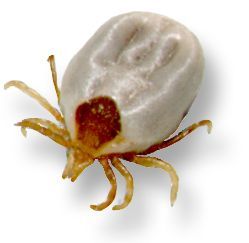
Tick paralysis is a potentially life threatening condition that can affect dogs and cats and is caused by the Paralysis Tick (Ixodes Holocyclus).
Ticks are prevalent on the Northern Beaches, especially in bushy areas. They are most prevalent from Spring to Autumn however can occur at any time of year. Paralysis ticks will jump onto dogs and cats and then attach by burrowing their mouth-parts into the skin. They can attach anywhere, even in the ears on the lips or around the anus. However, they usually attach on the front half of the dog or cat.
What are some common signs of tick paralysis?
- Incoordination
- Weakness
- Collapse
- Vomiting or retching
- Change of bark or meow
- Difficulty breathing
Dogs and cats that are affected by tick paralysis will start to show signs of weakness and become uncoordinated. This usually starts in the hind limbs and gradually progresses forward until the dog or cat is collapsed. The toxin will also affect the voice box so the dog or cat may have a different bark or meow or may not be able to make any noise at all. This may also cause them to grunt when they breathe out. Tick paralysis is progressive and potentially fatal so it is important that if your dog or cat has any signs, contact us at Sydney Road Veterinary clinic as soon as possible.
You should search your pet thoroughly for ticks, at least once a day. You should use a product to help prevent tick attachment however remember that no product is 100% effective at preventing ticks from attaching and causing paralysis so regular searches are vital in order to avoid tick paralysis.
Products that can help include chewable Nexgard®, Nexgard® Spectra, Bravecto® and Simparica® tablets, Seresto® collars and Bravecto® spot ons for dogs and Bravecto® spot ons and Revolution Plus® spot ons for cats. It is vital to use tick prevention products exactly as directed and most importantly, do not to use any products designed for dogs on cats as these can be extremely toxic to cats. Please do not hesitate to see the friendly team at Sydney Road Vet Clinic for further assistance.
If your pet is showing any signs of tick paralysis, contact us at Sydney Road Veterinary clinic as soon as possible.
For more information on ticks visit the Small Animal Specialist Hospital information page

